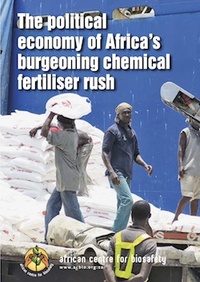Agapito y Oscar López
Por José Escoda
Frente Socialista
El pasado sábado 4 de este mes, el gobernador del ELA, A. García Padilla, visitó a su celda al luchador independentista borica, Oscar López, quien lleva 33 años por el imposible delito de conspiración sediciosa. Más de uno/a ha alabado esta visita, más de una/o la ha censurado; como casi siempre elogios y oprobios han seguido sesgos de visión política y politiquera.
Lo más curioso de las reacciones a la visita es que varias voces que se alinean con la censura, también han salpicado a individuos y colectivos que propulsan la excarcelación de Oscar… aquí es donde creo debemos saber hilar más fino.
Puede que las intenciones de García Padilla hayan sido nobles o ruines. Partamos de la premisa de que las intenciones hayan sido en extremo politiqueras, y que incluso se agenció la visita dos años antes de las elecciones, de modo que muchos(as) de aquí allá lo olviden, pero que suficientes recuerden; recordemos que le ganó a Fortuño por unos 15 mil votos. ¿Es esto razón para menospreciar la campaña a favor de la excarcelación de Oscar? Considero que la respuesta es un categórico ¡NO!
La campaña de excarcelación de un político no siempre debe partir de la premisa de que toda petición por su liberación sea una muestra de simpatías con los ideales y motores de lucha del prisionero. Si fuera así, ni Mandela, ni nuestros nacionalistas hubieran salido de la cárcel. Incluso cuando a Oscar Collazo lo sentenciaron a muerte, la campaña internacional a su favor no incluía la justificación del ataque a Casa Blair (ojo: con el que yo estoy de acuerdo), ni toda petición a favor de los Rosenberg o de Bobby Sands eran votos de confianza a que la URSS tuviese bombas atómicas ni a todas las acciones del Ejército Republicano Irlandés - provisional.
El movimiento independentista está a favor de la excarcelación inmediata de uno de los nuestros, los y las socialistas y demás actores sociales del centro-izquierda del continente también, líderes religiosos, figuras del deporte de la cultura y la farándula piden su excarcelación, en fin, el pueblo boricua reclama que el suyo regrese a casa… eso lo sabemos.
El hecho de que el gobernador de la colonia –aunque sea que lo haya hecho por las razones más mezquinas posibles que se le puedan atribuir– actúe con una visita a favor de la petición de su excarcelación debe acercar la fecha en que López pueda reintegrarse a su familia y pueblo lo más pronto posible; y eso es positivo. Incluso: mientras más perversas puedan haber sido las intenciones de García Padilla (que no necesariamente las fueron), más evidencia la efectividad de la campaña a favor de Oscar… pues si hasta para maquinaciones de la derecha hace falta apuntarse en la lista pro Oscar… más se refuerza la contención de que el reclamo por la excarcelación del pepiniano ha logrado un peso político en el país.
Nada de esto significa que debamos bajar la guardia, no significa que haya razón alguna para votar por Agapito, no significa que debamos premiarlo por cumplir un deber moral, no significa que descartemos posibles urdidumbres de sacar ventaja del asunto… pero significa que el esfuerzo persistente, continuo y enfocado rinde frutos… y ojalá pronto sean los que deseamos.
En relación con la tarea de las voces socialistas en el país, creo que debemos continuar con una campaña de denuncia de violación de los derechos humanos sobre todo nuestro pueblo trabajador, defendiendo nuestro derecho a defendernos usando todas las armas a nuestra disposición, luchando contra la colonia, a favor de nuestra independencia y el socialismo en las Antillas y en el planeta … y por la excarcelación de Oscar López, por las razones que nosotros apoyamos sus acciones y denunciamos que UN día de cárcel es injusto por ellas…
Pero pa que Oscar salga más rápido, hace falta también incluir otras voces, hasta de la derecha…






.jpg)


.jpg)






